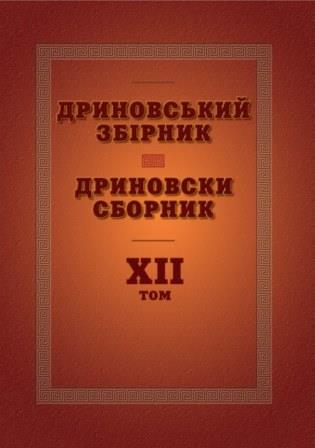Between two empires: Baltic countries and Ukraine in 1918
Abstract
In the article author discuss about prerequisites of proclamations and conditions of the early existence Baltic countries and Ukraine during WWI and in 1918. By this title I mean the permanent residence of the peoples of Baltic and Ukraine, and then corresponding states of these peoples between the German empire that was at the peak of its possibilities, thеn was in decline in result of the defeat in the World War I and the Russian/Soviet empire that was too in decline, but was in reconstructing in different type. In this connection I touch lately past by these peoples shortly. The main attention is directed toward the Baltic states, partly - to Ukraine. I think it is worth to point on the some common problems existing in these peoples during this and previous periods of time, particularly – level of modernization, tragedy and suffering brought by the
WWI. Peace and the land question were the most wanted aspirations of the masses. I write about the ways of gaining of independence in these countries in 1918 and reactions of both empires on it. In article I find out processes that led to formation of the national governments and the Soviet republics in these countries, their wars supported by the Soviet Russia or Germany.
It may be note that in Estonia the social preconditions for independence was more favorable then in Latvia and Lithuania, Ukraine. In Ukraine idea of the own state was proclaimed both in its Western part, under Austria-Hungarian rule and in its bigger East in Russia empire earlier thаn in Baltic nations. It seems that Ukraine was in better position to gain independence then Baltic peoples in 1918. Ukrainians concluded peaceful treaty with Germany. The former’ troops helped put off the Bolsheviks out the country. For the Baltic peoples and national movements the Germans were social oppressors and politically dominated for centuries, during WWI Germany was occupant majority of their territories. But level of national conscious here was higher than in Ukraine. The principal difference in Baltic and Ukrainian affairs was the importance for Russian Bolsheviks and the Whites of Ukraine in economic, political, cultural meaning.
Downloads
References
Bruggeman, K. 2003. Defending national sovereignity against two Russias: Estonia in the Russian Civil War 1918-1920. Journal of the Baltic studies, vol. XXXIY, no. 1, pp. 22-51.
Bruggemann, K. 2017. Yearning for social change: Russian revolution in the Baltic provinces. Studies in Ethnicity and Nationalism, vol. 17, no. 3, pp. 358-368.
Pranas, C. 1986. Naujuju laiku Lietuvos istoria. Chicago, Dr. Kazuys Grimius Fund, vol. 2. 840 р.
Mati, G. 2007. Estonia i Rossia 1917−1991: anatomia rasstavania. [Estonia and Russia 1917-1991: anatomy of divorce]. Tallin. (In Russian)
Horlen, H. 1973. German Policy in the Eastern Baltic Sea in 1918: Expansion or Anti-Bolshevik Crusade? Slavic review, vol. 32, no. 2, рp. 339-357.
Liudendorf, E. 1924. Moi vospominania o voine. 1914−1918. [My memoirs about war]. Moskva. (In Russian)
Mishke, V. 1968. Etogo nelzia zabyvat’ [That should not be forgotten]. Riga. (In Russian)
Novatskas, K. 1970. Litva i Antanta (1918−1920) [Lithuanian and Entente (1918-1920)]. Vilnius. (In Russian)
Oktiabrskai revolutsia v Latvii, 1957. Dokumenty i materialy. [October revolution in Latvia. Documents and papers.]. Riga. (In Russian)
Plakans, A. 1995. The Latvians. A Short History. Stanford, Hoover institution press. 258 р.
Plakans, A. 2011. А Concise History of the Baltic States. Cambridge, Cambridge University press. 492 р.
Povorotnye momenty istorii Estonii, 2007. Sbornik dokumentov I materialov [Turning points of the Estonian history. Papers and materials]. Tallin. (In Russian)
Rimantas, M. 2008. In 1917-18 did Lithuania separate from Russia or Poland? Lithuanian historical studies, no. 13, pp. 101-117.
Revolutsia, grajdanskai voina і inostrannai interventsia v Estonii, 1988. [Revolution, civil war and foreign intervention in Estonia]. Tallin. (In Russian)
Sipols, V. Ia. 1959. Za kulisami inostrannoi voennoi interventsii v Latvii (1918−1920). [Behind the scenes foreign military intervention in Latvia (1918-1920). Moskva. (In Russian)
Sotsialisticheskai sovetskai respublika Latvia v 1919 g. i inostrannai interventsia, 1959. Dokumenty i materialy v dvukh tomakh. Tom 1 [Socialist Soviet republic Latvia in 1919 and foreign intervention. Documents and papers in two volumes. Volume 1]. Riga. (In Russian)
Stuchka, P. 1964. Latvijskai sotsialisticheskai sovetskai respublika [Latvian Soviet socialist republic]. Za Sovetskuu vlast’ v Latvii [For the Soviet power in Latvia]. Riga. (In Russian)
Suny, R. 1998. The Soviet experiment: Russia, the USSR and the successor states. Oxford University press. 540 p.
Tauber, J. 2008. German Eastern Policy, 1917-1918. Lithuanian historical studies, no. 13, pp. 67-74.
Tаuber, J. 2015. The Wild East: German impressions of Lithuania, 1915-1919. Historica Universitetis Klaipedesis, t. XXXI, pp. 171-184.
The Baltic States in Peace and War, 1917-1945, ed. 1978. V. Stanley Vardys and Romuald J. Misiunas. University Park. Pennsylvania State University press. 256 р.
The History of Lithuania, 2013. Vilnius, Publishing house “Eugrimas”. 317 p.
Tsielava, V. 1975. Reaktsionnai suschnost’ Uchreditel’nogo sobrania burjuaznoi Latvii. Avtoreferat dissertatsii na soiskanie uchen. step. kand. istorich. nauk [Reactionary sense of the Constituent assembly of Latvia. Extended abstract of candidate’s thesis]. Riga. (In Russian)
Velikai Oktiabrskai sotsialisticheskai revolutsia v Estonii, 1958 [Great October socialist revolution in Estonia]. Tallin. (In Russian)
Vetry revolutsii, 1968. Sbornik vospominanii o proletarskoi revolutsii v Litve. [Winds of revolution. Collections of the memories about proletarian revolution in Lithunia]. Vilnius. (In Russian)
White, J. 1994. National Communism and World Revolution: The Political Consequences of German Military Withdrawal from the Baltic Area in 1918-1919. Europe-Asia Studies, vol. 46, no. 8, pp. 1349-1369.

